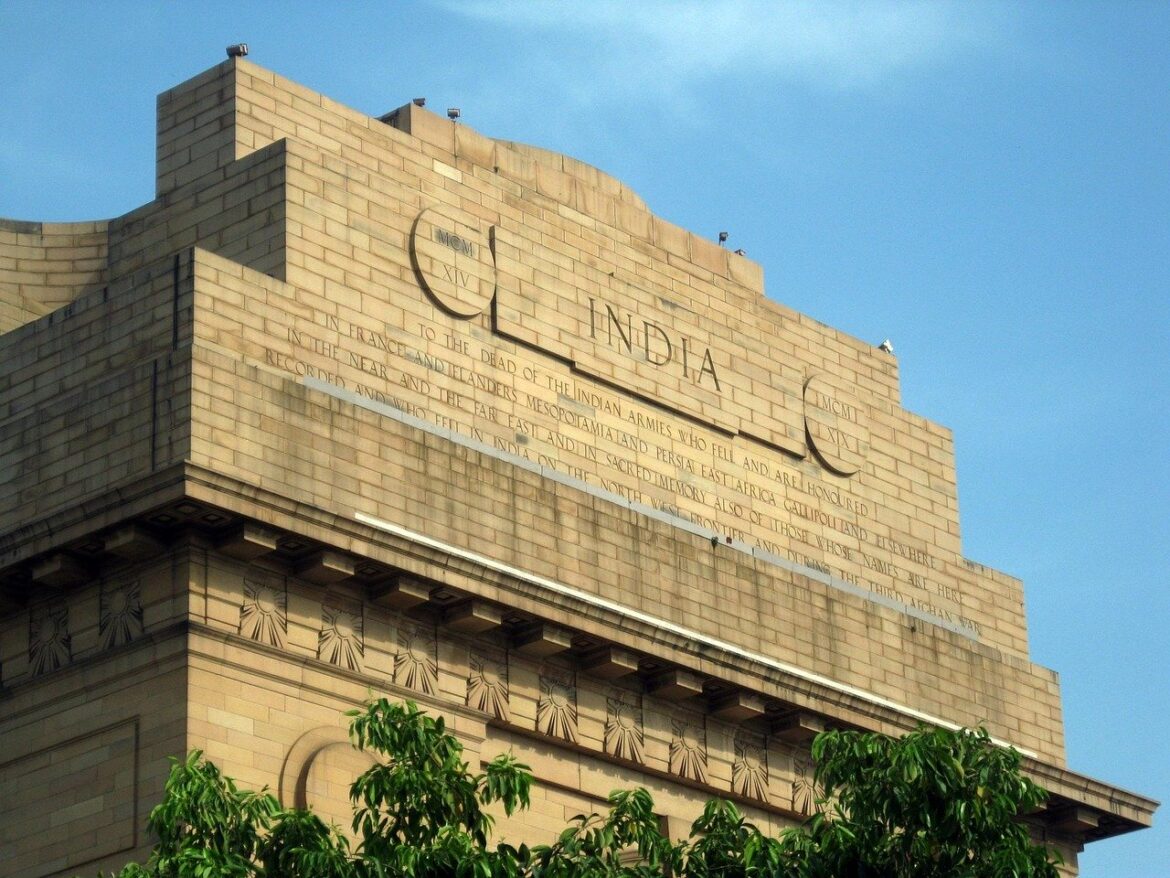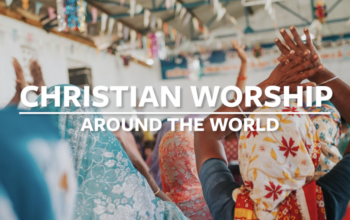These invented allegations have had a devastating impact on the lives of the wrongly accused.
In a significant ruling on October 17, India’s Supreme Court dismissed all criminal cases against Christians falsely accused of mass religious conversions, marking a victory for religious freedom. The ruling was a win for justice, and it called out authorities who abused the system. This ruling also sets a precedent for future cases and may influence the future of anti-conversion laws in India.
A 158-page judgment by Justices J.B. Pardiwala and Manoj Misra affirmed the innocence of Pastor Vijay Masih and several staff members from Broadwell Christian Hospital and officials from SHUATS in Prayagraj. Since April 2022, they’ve faced wrongful accusations under Uttar Pradesh’s anti-conversion law, which prohibits religious conversions by force, fraud, or allurement.
The Supreme Court, in a resolute stand against legal misuse, declared, “Criminal law cannot be wielded as a tool to harass innocent individuals, allowing agencies to prosecute based on whims and entirely implausible evidence.” This statement underscores the court’s unwavering commitment to justice and fairness.
Following this, in another significant decision in Uttarakhand, Pastor Nandan Singh, the first Christian charged under the state’s ‘anti-conversion’ law, was acquitted after a four-year legal battle. The relief and vindication felt by Pastor Singh and others in similar situations is a testament to the justice served.
On April 14, 2022, Maundy Thursday, the distressing situation for Christians in Uttar Pradesh started when Hindu extremists from the VHP, a right-wing Hindu nationalist organization, surrounded Pastor Masih’s church, locked the gates, and called the police, alleging the pastor forced 90 Hindus to convert. Pastor Masih, along with 35 members of the congregation, was detained following this unfortunate incident. According to Morning Star News, Pastor Masih was re-arrested in October 2022 and spent over 100 terrible days in jail after being released on bail.
The Supreme Court ruled that the initial FIR, filed by VHP Vice President Himanshu Dixit, naming 35 people and 20 others, was fundamentally flawed. The filing was legally flawed, submitted by a non-victim. Before its 2024 amendment, Section 4 of the Uttar Pradesh Prohibition of Unlawful Conversion of Religion Act allowed only the wronged individuals or their kin to file such complaints. This rule aimed to curb petty lawsuits by those who interfere, highlighting the court’s unwavering commitment to justice and fairness.
In January 2023, nine months after the first incident, new accusations surfaced, resulting in four more FIRs filed by those claiming to be victims of the mass conversion. Forty-seven named and 20 unnamed people were accused in FIRs 54, 55, and 60 of 2023, and many Christians were in multiple complaints. But the Supreme Court found major credibility issues with these later assertions, casting doubt on the integrity of the investigation.
The court’s scrutiny of witness statements revealed a disturbing pattern of ‘cyclostyled’ accounts, mechanically duplicated. The fact that three affidavits submitted by alleged victims were nearly identical in content, with only the signatories’ names differing, was a red flag. The electronic stamp papers associated with these affidavits, all displaying timestamps within minutes of each other, suggested they were hastily prepared in a standardized manner, rather than reflecting genuine personal accounts. This level of scrutiny demonstrates the court’s unwavering commitment to uncovering the truth.
The court highlighted a glaring discrepancy in the affidavits of Sanjay Singh and Pramod Kumar Dixit. Both men stated their Aadhaar card names had been altered from “Rajesh Kumar Dwivedi” to “Rajesh Kumar Samson,” but neither was actually named Rajesh Kumar Dwivedi. The court stated that no further comment was needed on the victim’s affidavits.
It was most alarming that the people who filed the January 2023 FIRs had given opposite statements during the first investigation in April 2022. Virendra Kumar, the complainant in FIR No. 54/2023, claimed forced conversion, contradicting his April 15, 2022, statement to police, where he said he wasn’t a victim but a VHP member with Himanshu Dixit at the church. The court noted, “The mere fact that the complainant in FIR No. 54/2023 had taken a complete U-turn from the statement he made during the course of investigation in FIR No. 224/2022…makes it an easy guess as regards the circumstances in which multiple subsequent FIRs came to be registered.”
Although the judgment provided legal vindication, it came far too late to alleviate over three years of turmoil endured by affected Christians, whose lives were irrevocably altered by the false accusations. The general secretary of the Evangelical Church of India, Rev. Edwin J. Wesley, expressed the community’s anguish, calling the Fatehpur incident a ‘planned target against the Christian community.’ Despite this, the resilience and faith of the Christian community are truly admirable.
Wesley noted the church’s full cooperation with government teams, confirming that all attendees were members of the Christian ECI Church and that no conversion attempts were made. He lamented that the police didn’t believe them. The Supreme Court dismissed the four FIRs, finding that the prosecution had no witnesses to support its claim.
Pastor Jose Prakash George, leader of an independent church living on Mission Hospital grounds, was arrested in February 2023, ten months after the initial event; he endured five terrible months in Fatehpur District jail before release on bail in June 2023. “Nothing was happening at all,” Pastor George explained, “so there was no proof of any change here.”
Pastor George stated that 68 individuals were listed in the FIRs, some mentioned in several, impacting 68 families. Among those imprisoned with him were four women, a teenager, and four men, totaling nine people. According to the FIRs, five children were identified, aged 11 through 17. A 17-year-old was incarcerated because of the authorities’ inaccurate recording of his age as 23. One small girl was “shipped out late at night” to escape arrest, he said.
The families suffered terribly, both financially and emotionally. About 7,000–10,000 rupees (roughly US$79-US$113) per month was the salary for most of those accused, who were poor workers at the Mission Hospital. All their savings went to fighting the cases, as they had to travel to as many as eight locations – some more than 40 kilometers apart – to record statements and appear for hearings in four FIRs.
Pastor George stated, “I’ve witnessed parents weep like children because they couldn’t buy milk or food for their children.” “Many kids could not attend school for more than two years.”
He stated that his wife was threatened with jail and job loss, and his children were constantly harassed. He and fellow Christians were ridiculed and disdained in prison due to conversion accusations. The injustice and hardship faced by Pastor George and his family are a stark reminder of the human cost of such false accusations, evoking a sense of empathy in the audience.
“The district court and the high court did not listen to us,” he said. “They would not even touch our file. We changed so many benches in the high court, but no relief came.”
Merin, senior administrative officer at Broadwell Christian Hospital, said that around 57 staff members were transferred or lost their jobs due to the FIRs. Staff whose names appeared in the complaints had to relocate to other hospitals within the Emmanuel Hospital Association’s network of 19 mission hospitals in North India for their safety.
“Most of them had gone through severe stress, which had affected their health like anything,” Merin told Morning Star News. “And around 57 of them got transferred, while many lost their job.”
She said one staff member told her after the Supreme Court verdict, “Now I can search for a good partner for my daughter.” When asked why now, he explained that marriage proposals wouldn’t come while there was an FIR against him.
The hospital’s community health programs experienced significant disruptions, with vital livelihood and health initiatives ground to a halt, leaving only palliative care services operational. Many local staff members, facing the grim choice of relocating or losing their jobs, found themselves unemployed when the hospital could not renew their contracts due to escalating insecurity in the region.
Merin stated with mixed emotions, “We won the legal battle.” “Nevertheless, the damage has been done over these three years.”
“Our once-bustling 50-bedded hospital, which was always filled, began to see a stark decline, admitting only five to seven patients per day. This, in turn, resulted in a catastrophic loss of revenue,” Merin lamented, highlighting the devastating impact on both the community and hospital resources.
The Supreme Court observed that all FIRs had charge sheets by the time they reached the court. Yet, the court found fault with the investigators, claiming the evidence “lacks any confidence” in the probe’s honesty.
In its May 2024 statement, the court implied that parts of the Uttar Pradesh law on religious conversions appeared to clash with Article 25, which protects religious liberty. Moreover, the Supreme Court has yet to decide on another constitutional challenge to the 2021 Act.
Siddharth Dave, Siddharth Agarwal, and Rebecca M. John, all Senior Advocates, represented the petitioners. The legal group Alliance Defending Freedom (ADF) International was a constant supporter.
Pastor Wesley indicated the Fatehpur case reveals organized attacks on Indian Christians. “Fatehpur exemplifies a meticulously planned attack against minorities rooted in their faith in Christ,” he asserted. From the beginning, we realized the police would have difficulty winning, given our stance: we didn’t convert anyone, and we have a constitutional right to worship.
Advocates for religious rights say the NDA’s hostility, led by the BJP, has encouraged Hindu extremists to attack Christians since Modi took office in 2014. India’s rank on the 2025 World Watch List, which assesses the hardship faced by Christians globally, was 11th, a concerning jump from 31st in 2013, before Modi’s time in office.




